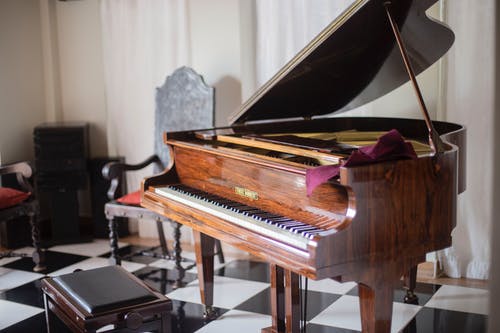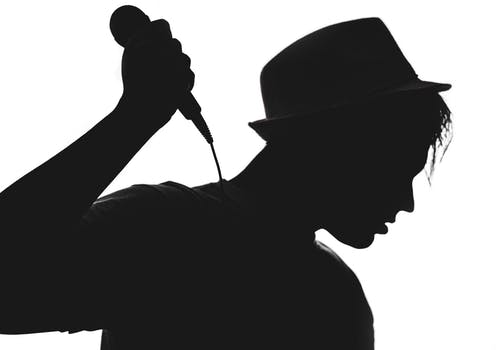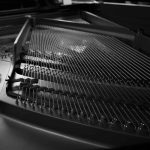If you plan on getting a piano for yourself, then one question you will be asking is if you need electricity to power your piano.
The simple answer is No. Recent pianos that you can get right now do not need electricity to power them.
The only time you might need electricity to power your pianos is if you intend to get electric pianos which use a combination of mechanical and electrical parts to generate their sounds.
And most of these electric pianos have all been phased out and have been replaced by digital pianos.
So does a piano need electricity?
Not at all, you can get your piano and start playing it without worrying about electricity.
Related check out this article I wrote on Can Piano Strings Break?
Should I Buy A Digital Piano or an Acoustic Piano?

Now that we are clear on the fact that you do not necessarily need electricity to power your piano, the next thing to consider is what kind of piano to get.
There are two main types of piano that I will suggest you get – and they are a digital piano or a standard acoustic piano
The major difference between them is the mechanism that produces the sound
The standard acoustic piano produces sound by channeling the power of your fingers pressing the keys into the hammer which then strikes the keys.
The vibrations produced by the strikings are then transmitted to the soundboard which is transfused and amplified.
When these vibrations combine with the resonance of the strings, what happens is that it creates a unique sound which is what you hear when a piano is played.
On the other hand, a digital piano has no strings.
What happens is that each key is a switch that produces a specific sound so to speak.
So there is an electric tone generator which produces the sounds and are then amplified by speakers.
So let’s look at some of the features that distinguishes a digital piano from a standard acoustic piano.
Features
An acoustic piano is a highly sophisticated musical instrument that has been used for a long time in making good music.
It has an appealing pure sound with a spontaneous and rich musical quality which is derived from the resonance and harmonics of the strings.
A digital piano is a lightweight, compact musical instrument that requires no tuning and comes equipped with volume control.
It has the unique ability to simulate the timbres of various musical instruments that closely approximates the expressive qualities of an acoustic piano with in-built recording functionality.
Also check out this article on Can a piano be stored in a garage?
Sound Producing Mechanism
The acoustic piano has a string striking mechanism which is usually referred to as the action that generates a particular vibration which is then transmitted to the soundboard through the frame.
Since the entire instrument acts as a resonator, a full and rich sound is always produced when the keys are struck.
On the other hand, a digital piano has sensors which can detect the movement of keys and digitally recorded sound from the keys which is then recorded and amplified by the speakers.
It also allows you to use acoustic effects such as reverb and delay to enhance the final sound that is being produced.
How is the touch action?
For the acoustic piano, it has it’s string striking mechanism which is composed of over 5000 individual precision parts that convey the subtle nuances of your finger movement.
As for the digital piano, it usually has a variety of mechanisms employed in the pursuit of reproduction of a grand piano touch response.
One thing to note is that the keyboard touch response also varies according to the manufacturer of the piano
What is the tone like?
When playing an acoustic piano, the timbre and sound quality, which makes up the tone of the piano vary according to how the piano is played.
This is usually due to the sometimes complex effect of resonance in the strings when they are not directly struck.
This offers you the pianist a lot of expressive potential.
But for the digital piano what you notice is that it has a consistent timbre and volume for all pianists where keys are played with the same strength.
What is the expressive power?
Talking about expressive power, we are referring to the ability to sustain sounds for a very long time.
The acoustic pianos cna sustain notes over a very long time, from the notes beginning to sound to when it eventually fades off.
Depending on the strength or softness of the touch, you can have mellow to brilliant touch which affords a rich expressive potential.
Whereas for digital pianos, using extensive, detailed recordings of sounds of acoustic pianos and technology that smooths the transition between timbres produced in response to firm or gentle touch, approaches the expressive capabilities of an acoustic piano.
How Durable are they?
Both the acoustic piano and the digital piano are very durable and can be used for a long time.
The acoustic piano can be used for a long time and only needs the old and worn out parts to be replaced ancd changed while the digital piano depends on standards for the expected lifetime of electronic components.
With the above mentioned points, it is a matter of choice on which piano to get.
There is no better option.
It simply depends on what kind of music you want to get from your piano and how comfortable you are using either the acoustic piano or the digital piano.
Things to Consider Before Buying a Piano
Like all things electronics and with so many options to choose from, you should be aware of certain things that will guide you in making a buying decision for your piano.
Here are 5 of my personal choices that you need to be aware of.
1. You really need to get an 88 Note Keyboard
Yes I know – anything less might be cheaper and you might just be tempted to go something cheaper, but please hear me when I say this.
You REALLY should get an 88 Notes keyboard.
This is because when you start playing the styles that most people out there teach, you will be playing higher or lower on your piano than most beginners.
As a result, for that small extra increase in price, the extra notes are well worth it.
At the very minimum, don’t buy a keyboard with less than five full octaves. Take my word on that
2. Make sure the Keys have standard width.
The next thing you want to do is to ensure that the width of your piano are standard.
What this means is that with a standard width key, you can sit down on any piano anywhere and have fun playing without any adjustment issues.
If your keys are standard size, you will have no problems sitting down at any piano and playing a tune.
So you want to make sure you avoid all “toy” like looking pianos or keyboards with very narrow keys
A standard piano key is usually about 23mm to 25mm in size which will make for good playing on the piano.
3. Make sure the keys have some form of Weighted action.
Another thing you want to note out there before you buy a keyboard is the way it feels when you physically press down a key.
Basically you want the key press to feel the same way on your piano even though there are no hammers or strings inside it.
A digital piano or keyboard will typically either have weighted action or not. Without weighted action, the keys on the keyboard will feel more like an organ.
Try to find a digital piano or keyboard with weighted action keys. It’s easy to move to an organ when you’re used to weighted action keys. Not so much in reverse
4. Ensure you are paying for only what you need.
One thing I notice from people buying pianos is that they tend to go for pianos with all the bells and whistles
And the one question I usually ask them is “What are you going to use that for?”
In my experience, most of these extra bells and whistles will most likely go unused and will only just add to the cost of the keyboard
I can tell you for a fact that you will play your piano on a particular setting 95% of the time.
The other 5% will have you using 4 – 5 other common tunes and that is it.
So avoid going for the flashy and swag looking pianos and just stick to something that you absolutely need and will serve you for a long time.
5. Make sure it has pedals
And finally, you want to make sure that the piano you are getting has pedals with it.
And this is where most people are confused and keep asking “What do I need pedals for?”
At a minimum, you need a sustain pedal
This is because a pedal allows you to play modern styles and tunes on your piano.
Now if you really want to stick to playing old school styles without adapting, then be my guest and get a piano without any pedals
But if you want to step your game up and come hang with the cool kids, then ensure you have a pedal when buying your next piano.
Conclusion.
If you are thinking of getting a piano and you wonder, if you need electricity then you do not.
Most modern pianos and keyboards do not need electricity for them to be played on.
As long as you are going for digital pianos as mentioned in this article then you are fine and you have nothing to worry about.



